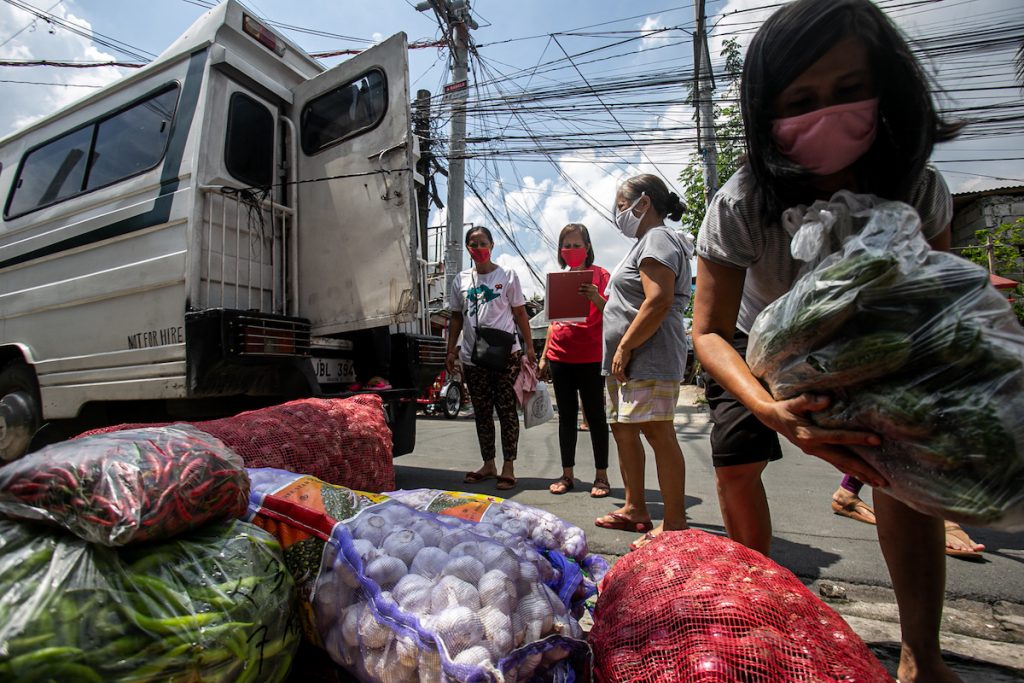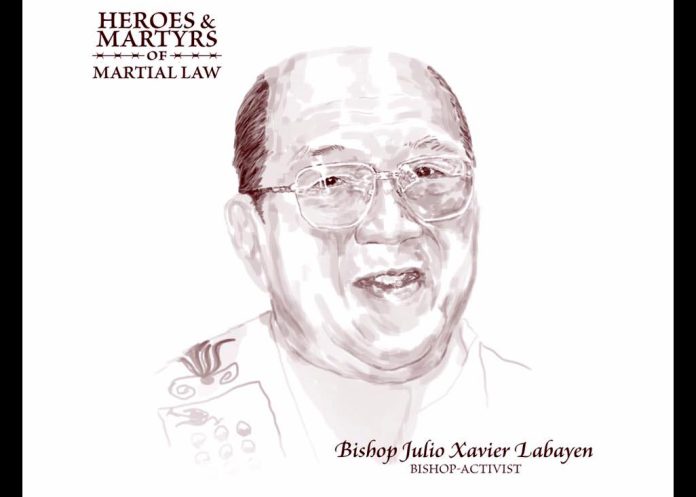(Excerpt from the author’s talk “Garment Covered with Dust: Directions in Bishop Labayen’s Theology of Praxis.” Bishop Julio Xavier Labayen was a Filipino Discalced Carmelite and a Catholic bishop who died on April 27, 2016.)
Much has been said and written on the Basic Ecclesial Communities as new way of being Church in the Philippines. Bishop Julio Xavier Labayen himself has shared extensively on BECs based on his experience in the Prelature of Infanta as a concrete expression of the Church of the Poor.
A very helpful personal narrative is his article entitled “Church of the Poor – Infanta Experience (Basic Ecclesial Communities)” written in 1996, around twenty years after he started with social programs for the poor in the Prelature.
Beyond the Prelature of Infanta, another useful article that traces the development of the BECs in the Church and in the Philippines read in new contexts is entitled “The Church and the BECs in the New Millennium.”
While I was reading through these texts, one can sense a man “who has been through it all” — as the trite English expression goes. As Bishop Labayen looks back, he also continues to reflect where the Spirit leads next. Let me mention some recognizable developments in these areas.
First, while it is true that BCCs started as groups of Christians in proximate geographical units (in the sense of kapitbahayan), Bishop Labayen also recognizes other models that “aim at bringing together certain groups of people who are linked by age, culture, civil state or social condition, such as married couples, the young, the professional, for the purpose of listening to, and meditating on the Word of God, and of the celebration and reception of the Sacraments.”
One can easily think of Couples for Christ, the Feast, covenanted communities, etc. He also recognized other structures like some Christian groups in certain areas not reachable by priests. There have been discussions in pastoral circles whether these are considered BECs or ecclesial movements. In this opening made by Bishop Labayen, one can argue for a more pluralist interpretation of what the BCC or BEC is all about.
Second, he thinks that BECs should be open to working in solidarity with peoples’ movements. The politics in the change of name from BCCs to BECs is known to us. The distinction, however, does not feature prominently in the discourses of Bishop Labayen. He uses both terms interchangeably. For him, if BECs shall “remain, be nurtured at, and grow” in the bosom of the Church as Pope Paul VI urged, it shall also be radically open to all people of good will – “those who are not part of the Basic Christian Communities, and want to build a more human world.”
Beyond a purely intra-ecclesial program which characterizes many BECs today, it is enjoined to open its doors to many groups of people, most of whom are non-Catholics, non-Christians some coming from different ideological persuasions, who also aspire for a just and human world. Many forms of this open collaboration abound. For instance, the FABC documents talk about Basic Human Communities.
This is not new to the Prelature of Infanta which has engaged the organized sectors ever since in the crafting of the vision and programs of their BECs. The regular meetings and established ground rules make possible a common engagement of bringing about a better world at the same time respecting religious, gender, cultural uniqueness.
Third, we have seen how Bishop Labayen defended the use of Marxist social analysis in the Church as he was also critical about it. In more recent articles, he revisits it and is not afraid to ask difficult questions. He remembered some of his co-workers in the social field were burnt out. “Some went somersault,” he said. “They eventually joined the very capitalist institutions they were zealously criticizing and fighting before. The more clever ones became executives of these institutions …. What went wrong with these committed people: priests, religious and laity?” And Bishop Labayen is not afraid to advance his honest answer.
“[These] well-meaning activists put their hand to the missionary task of the Church banking overly on social analysis and its corresponding strategy and tactics. What they perhaps unwittingly downplayed, in the process, was the role that spirituality had to play in this task …. Perhaps, the dialectical materialism of Marx conditioned them to put aside the transcendent dimension of his own humanity, let alone their faith in Jesus-Christ.”

For Bishop Labayen, this is not an outright condemnation of Marxism and its adherents. One can remember his deep appreciation for the witness of Father Frank Navarro of Tandag diocese who was killed in a military encounter while traveling to inform the NPA to keep from harm’s way as the military were approaching.
“I humbly salute Fr. Navarro for his Catholic sense of priesthood and pastoral ministry for his personal testimony to the social and communitarian dimension of authentic Christianity in its entirety, and his revolutionary spirit to renew the face of the earth. If Latin America has its Camilo Torres, the Philippines has its Frank Navarro.”
What is crucial for him is the transformation of the human person from within regardless of one’s ideological affiliation. I can discern a basic question in all his writings: how are our lives lived — for ourselves or for others and God? Let me quote him extensively as I feel that these words come from the depths of his heart.
“I came to my last query: In their zeal, what was their heart bent on? On self? Or on the living and saving God of history? In other words, ‘What was the disposition of their heart? Did they pay attention to the subtle and deep aspiration of their human heart? Did they call on the Spirit of the Risen Lord to purify their heart and so be united with the Lord to the point of dying on the cross for the sake of the victims of injustice, greed and avarice of this world? Did they rather not attempt to do by themselves alone the Herculean task of taking on the powers of darkness and evil without the light and sanctity of the Savior?’
“I came finally to one simple conclusion. There is no genuine and lasting qualitative change unless the change comes from a heart that is converted to, and united with God …. Revolutions failed because they did not have a heart. The heart of the revolution is the revolution of the heart.”
In order to end, let me go to his Episcopal motto: Dominus est! “It is the Lord” (John 21:7). It was John the Beloved who recognized the Risen Lord in the Sea of Galilee after they have caught a great number of fish.
Bishop Labayen also recognized the Lord not after a large catch. He recognized the Lord among the poor — farmers, laborers, fisherfolk — even as there was yet nothing, even if it was just the hard ground and breaking stones in the scorching heat or the cold rain. He recognized Him even if “his garment is covered with dust.”
That is why I quote Tagore here as Bishop Labayen also used the same verse somewhere.
“Open your eyes, and see that God
is not in front of you
He is there where the farmer is tilling
the hard ground
And where the laborer is breaking the stones
He is with them in the sun and the rain
and his garment is covered with dust.”
=====
Father Daniel Franklin Pilario, C.M., is a theologian, professor, and pastor of an urban poor community in the outskirts of the Philippine capital. He is also Vincentian Chair for Social Justice at St. John’s University in New York.









